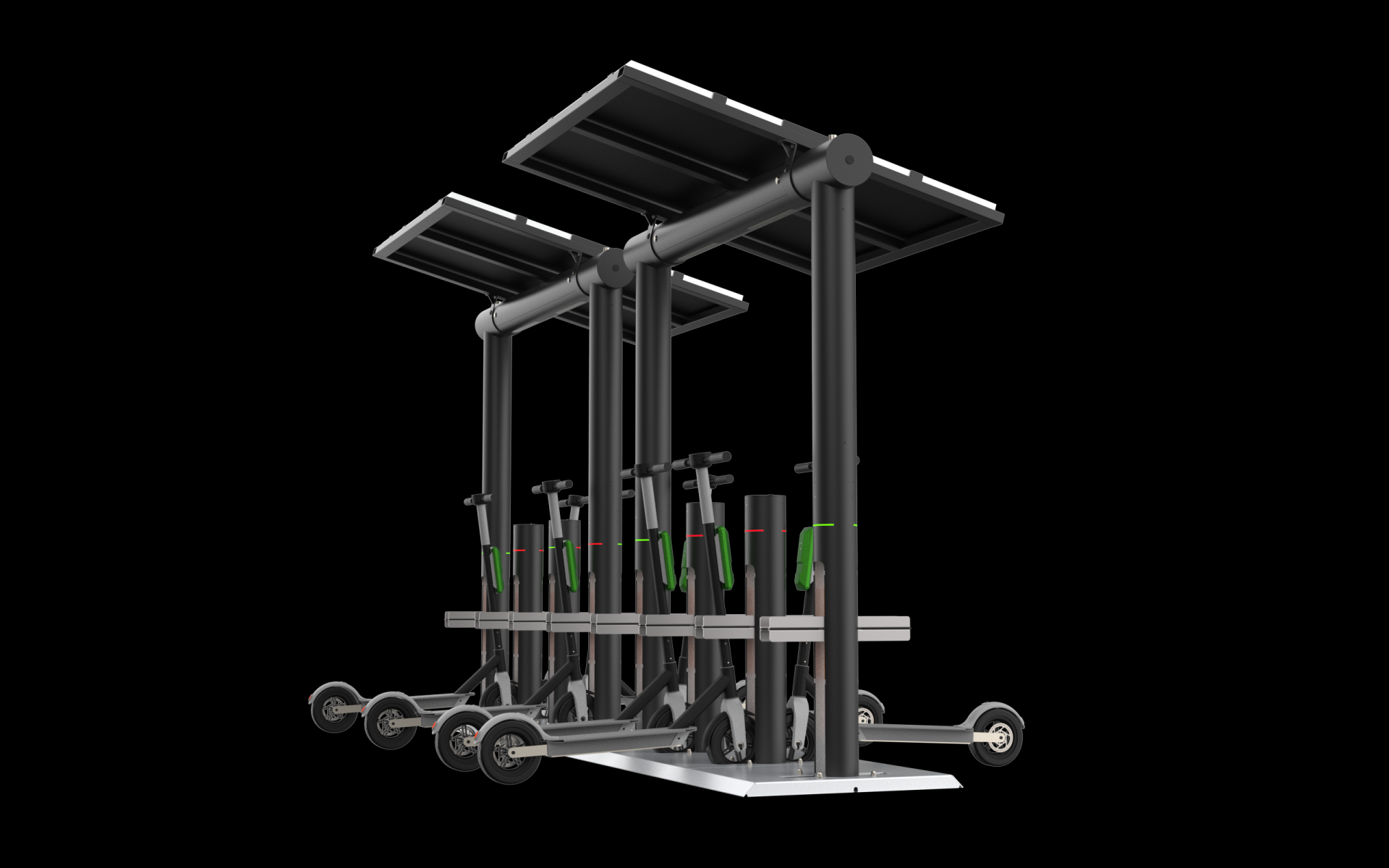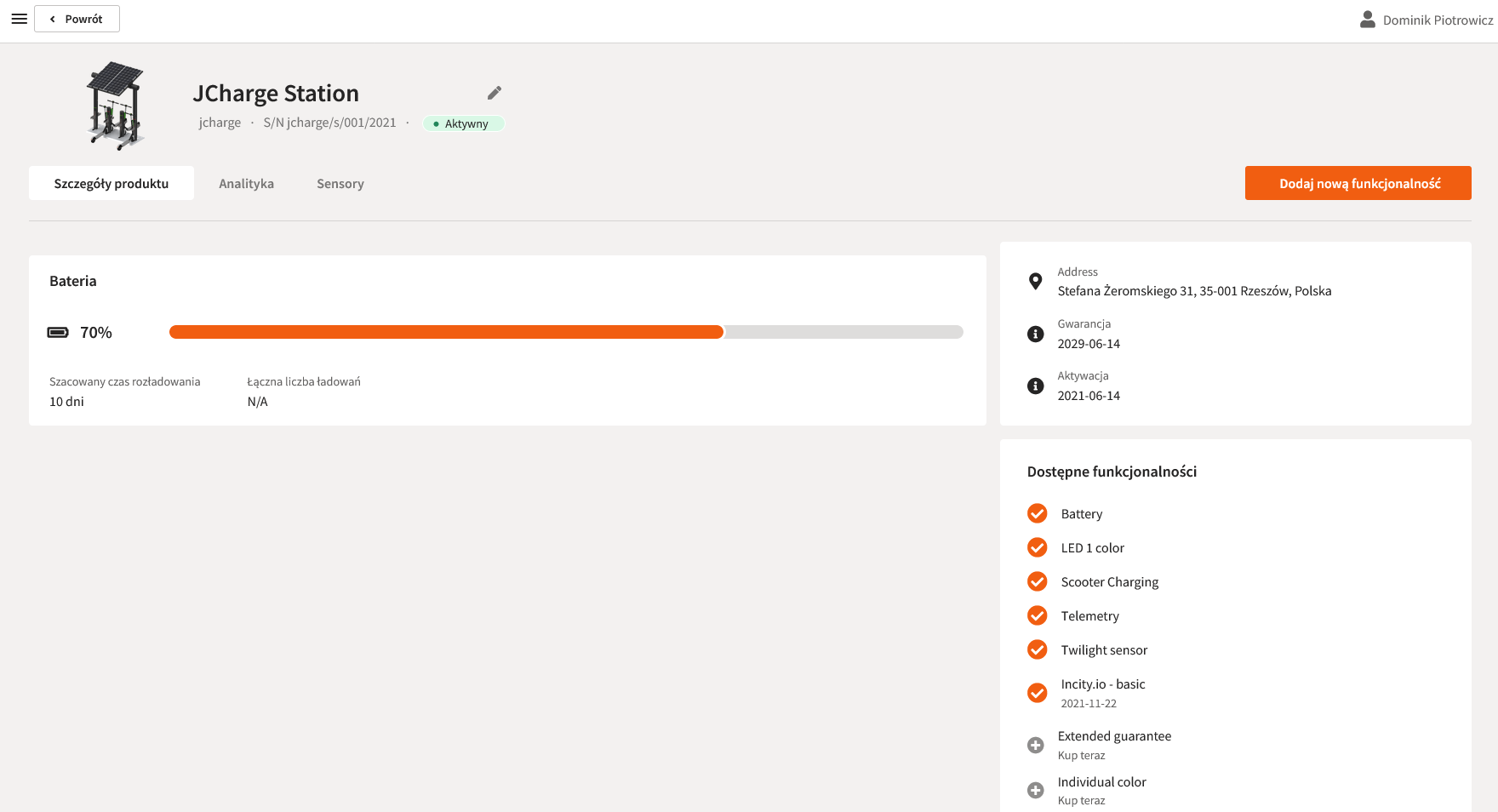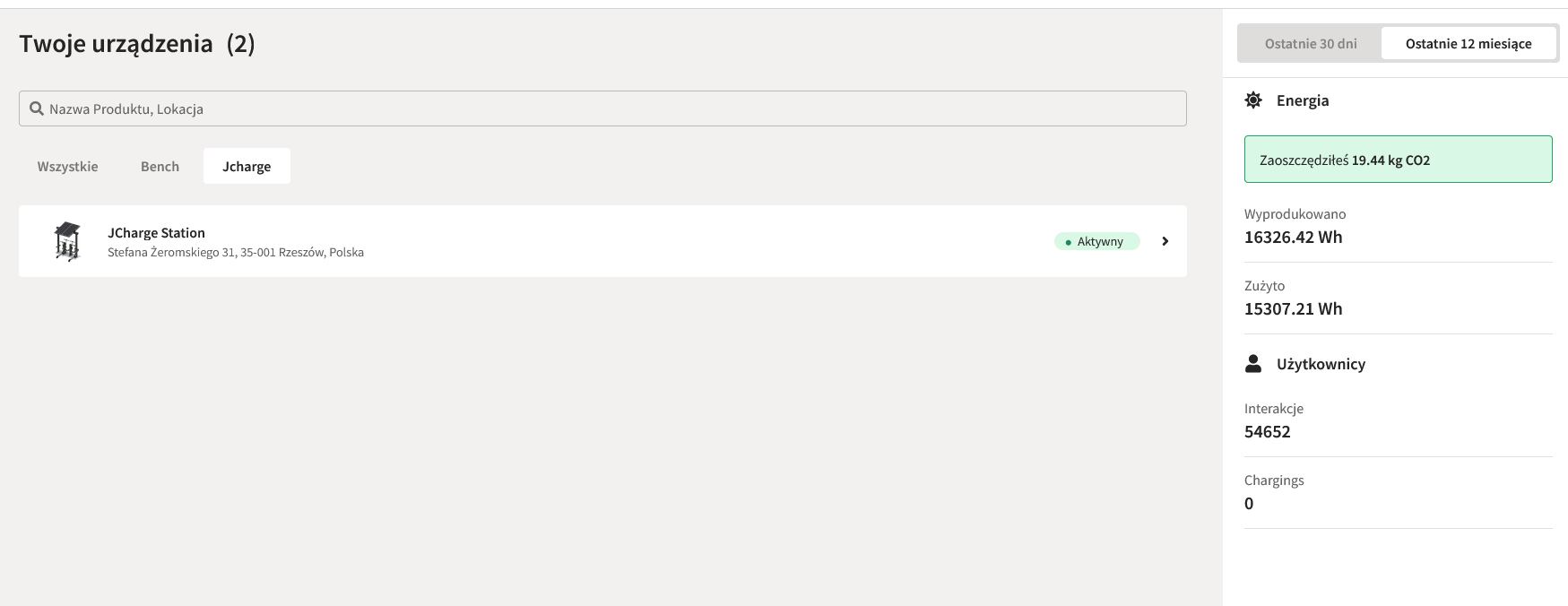Solar Charging Station for Micromobility
Basic information
Project Title
Category
Project Description
jCharge is a universal electromobility charging station. The first solar station has been installed in Rzeszów. Authorial technology manages the electricity from solar energy, which positively affects the ecological image of the city. The station collects all non-sensitive data on the devices it charges, and thanks to the management panel we can see the current energy consumption and data on the location of the scooters. jCharge builds order in the city and makes micromobility 100% ecological.
Geographical Scope
Project Region
Urban or rural issues
Physical or other transformations
EU Programme or fund
Which funds
Description of the project
Summary
We have been following urbanization trends closely and we see a huge potential in the electromobility sector, with 70% of people living in cities by 2050, which can bring many challenges to urban development. This also raises many challenges, especially when it comes to transportation within cities, such as congestion, access to multiple urban zones, centers, finding parking spaces. With cities with electric micro vehicles in mind, our new project jCharge, universal electromobility charging stations for smart cities, was created. jCharge promotes this style of moving around the city, but above all optimizes the charging and parking process itself, so that it is functional, safe, tailored to the needs of cities, affects the interactivity and efficiency of urban infrastructure and does not disrupt urban order. Our solution is, above all, clean energy, and thus reducing CO2 emissions and charging costs to zero. What characterizes this project is its versatility and innovation - thanks to the charging station, the scooters are fully green and orderly, and the city is fully sustainable.
The first solar station has been installed in Rzeszow. Thanks to it, residents have the opportunity to charge urban electric micro vehicles, which the station independently recognizes. jCharge stations are primarily designed to charge the scooters of urban operators, who provide us with data on the location of the scooter. In this way jCharge builds order in the city and makes micromobility 100% ecological.
Putting the scooters in designated charging areas will make them disappear from bike lanes, narrow sidewalks and streets, which will contribute to maintaining order in public spaces and increasing the safety of passers-by.
Key objectives for sustainability
The solution we offer is designed to improve the living comfort of residents and contribute to reducing CO2 emissions into the atmosphere and improving the state of our planet. We are a company whose mission is to change the world for the better. We believe in small steps that have a big impact on education, safety and ecology - this change is to initiate charging stations jCharge scooters. The idea behind the creation of the products is to collect energy and give it back in the form of the possibility to charge micromobility devices. The jCharge station takes into account social interests and environmental protection through the following functionalities:
- solar energy - using solar panels to reduce energy demand and thus CO2 emissions;
- charging micromobility devices - the station is equipped with chargers, which are available to users 24 hours a day;
- modern design, the highest quality of materials used, attention to user experience.
The world is currently at the moment when the CO2 standards in the atmosphere have been exceeded in such quantities that it has never happened before in its history. In practice, this means that we need to take drastic and immediate steps to reduce the level of carbon dioxide in the atmosphere. The solution is CSR action, both that focused on engaging in social activities and paying attention to the mentioned ecological aspects. In the case of jCharge, we start with small but important steps that create a much bigger picture. Our solutions won't stop people from using their mobile devices, but they will charge them with clean energy, reducing CO2 emission.
Key objectives for aesthetics and quality
The charging station for scooters and electric bicycles is a fully modular and autonomous product, designed for the development of micro-electromobility in cities. Operation requiring no external power supply is possible thanks to efficient solar panels. In its default configuration it consists of 4 charging stations. Each mast is equipped with a universal vertical slot, which alternatively enables docking of a bicycle. The posts have double-sided handles that stabilize the scooter's handlebars. It is designed according to modern design and highest quality materials. jCharge station becomes an element of urban infrastructure and fits into the style of modern Smart City. Construction of the station is based on simplicity and minimalism through which it provides intuitive use, perfectly matching both the modern urban space. Side colored LED lighting plays both a design role and is adapted to the space. Thanks to twilight sensors adapts the intensity of light to the prevailing conditions.
Key objectives for inclusion
The project was created for residents of large and small cities. jCharge responds to the real needs of the local community and the city itself. Thanks to the implementation in Rzeszow residents can charge small electromobility vehicles, often left alone on the sidewalks with dead batteries. The product also ensures safety at night, which highlights the innovation of the project. Residents have access to tools for analyzing city data such as traffic density, CO2 reduction and number of plug-ins.
Results in relation to category
The jCharge project is based on sustainably sourced natural resources or new business models with clear benefits in terms of sustainability and closed-loop, as well as in terms of quality of life for all people. The project includes materials showing the data collected by the jCharge station in Rzeszow.
How Citizens benefit
For the sake of residents and tourists of Rzeszów we would like to initiate the creation of an ecosystem that will improve their quality of life, but also contribute to the reduction of CO2 emissions to the atmosphere, which is so dangerous for our planet. Our mission is to educate people about how a change in lifestyle can affect this growing problem.
Our station is integrated with other urban technologies such as urban bikes and urban GPS system, thanks to which our solution significantly improves the quality of urban mobility.
We create solutions for all social groups, preventing social exclusion. Every resident and tourist of Rzeszów has the opportunity to use the stations and contribute to spreading the practice of green habits. Users who consciously use micromobility vehicles become examples for their friends, family and acquaintances, which increases the number of people involved in the project
Physical or other transformations
Innovative character
The charging station for scooters has a positive impact on extending the life cycle of these devices. The station provides a parking and charging point for the scooters, which allows citizens to take care of the common good and extend the useful life of the city scooters. Thanks to the Smart City management platform and SEEDiA application, users and the city have remote access to the product and can report faults and maintenance. The platform allows to review the statistics of the device: the amount of energy produced, CO2 reduction, the number of charges of the device.
Learning transferred to other parties
The jCharge project implemented on multiple scales in the form of permanent parking and charging points for scooters will contribute positively to the orderliness of public spaces and reduce the costs of servicing and charging scooters to a minimum.
The jCharge project in combination with solar shelters, which are also offered by SEEDiA, creates the Transport 4.0 concept.
Transport 4.0 means a new and better quality of urban mobility. It means easier access to sustainable mobility and the introduction of automation into the public transport infrastructure. Combining a solar-powered bus shelter with a charging station for electric scooters makes it easier to cover the so-called "last mile", i.e. the distance to the public transport stop and from the stop to the final destination.
An opportunity for the introduction of sustainable transport is the construction of integrated transfer hubs. Such facilities will be equipped with the necessary infrastructure to encourage residents and tourists to leave their cars in designated parking spaces and use public transport.
Transport 4.0 means:
- integration of electromobility with mass transport
- common management platform
- redirecting micromobility traffic to mass transport
- last mile management of public transport
- Reduction of CO2 emissions
- reduction of management costs



